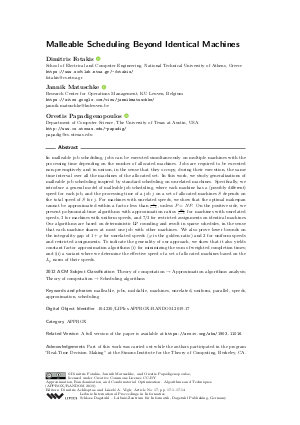LIPIcs.APPROX-RANDOM.2019.17.pdf
- Filesize: 0.53 MB
- 14 pages

 Creative Commons Attribution 3.0 Unported license
Creative Commons Attribution 3.0 Unported license

























Feedback for Dagstuhl Publishing